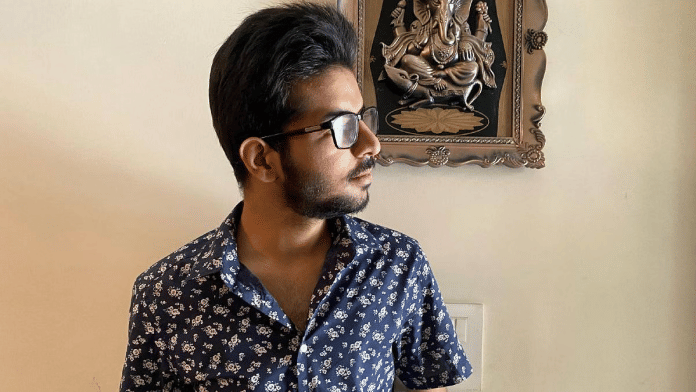New Delhi: Noting that reasonable accommodation is not a matter of charity, but instead a fundamental right, the Supreme Court has ruled that Kabir Paharia—a MBBS candidate with locomotor disability—be allocated a seat at All India Institute of Medical Sciences (AIIMS), Delhi.
Paharia had cleared the National Eligibility-cum-Entrance Test (Undergraduate), or NEET-UG, but was declared ineligible by a medical board to pursue medical studies. After the second assessment results, he had moved the court for justice.
“The constitutional promise of equality is not merely formal but substantive, requiring the State to take affirmative measures to ensure that PwD (Persons with Disabilities) and PwBD (Persons with Benchmark Disabilities) can meaningfully participate in all spheres of life, including professional education,” a bench of Justices Vikram Nath and Sandeep Mehta ruled.
“We accordingly direct that the appellant shall be allocated a seat in the MBBS UG course 2025 against the Scheduled Castes PwBD quota in the All-India Institute of Medical Science, New Delhi, in the forthcoming academic session,” it added.
A “person with benchmark disability” means someone with at least 40 percent specified disability where the specified disability has not been defined in measurable terms. Those with less than 40 percent disability are also included in the Rights of Persons with Disabilities Act, 2016, as long as their specified disability is defined in measurable terms, and is certified by a certifying authority. The Act recognises 21 types of disabilities.
Significantly, ThePrint reported in April, that Paharia’s case was an “anomalous” one where despite clearing the NEET-UG 2024 in the PwD category with the 176th rank and scoring 542 marks in a 720 mark paper, his fate was in limbo due to him not being able to secure admission owing to the National Medical Commission (NMC) guidelines.
Notably, one of these guidelines required that for entry into medical courses, a candidate must have “both hands intact, with intact sensations, sufficient strength and range of motion”, which are considered “essential” for eligibility for medical courses.
In the present case, Paharia had approached the court saying that he was a person with a benchmark disability, belonging to the reserved Scheduled Caste (SC) category. Paharia had contended that he was denied the same despite “standing high in merit in his category i.e., Scheduled Castes-PwBD quota”.
The two-judge bench of the Supreme Court set aside an order passed by the Delhi High Court’s division bench on 12 November, 2024, that denied relief to Paharia. Before this, Paharia had approached a single bench of the Delhi High Court, where he had met a similar fate, with his plea being rejected. The Delhi resident moved the top court for succour.
Also Read: Why disability rights non-profit has moved Delhi HC against Swiggy & Zepto
What court ruled
In its 2 May ruling, the apex court noted that Paharia was made to undergo an extensive review assessment by a Medical Board constituted at the AIIMS, New Delhi.
On 24 April, the Board forwarded its report to the court, following which the court concluded that Paharia had successfully demonstrated skilled techniques in the simulation laboratory including “chest compressions, intravenous cannulation, assembly of a laryngoscope, intubation and suturing”.
“The Medical Board, in its report, observed that the appellant demonstrated the functional adaptation using his existing digits during these tasks. The only minor challenge, which the appellant faced during the entire procedure, was putting on the sterilized standard gloves,” the court noted in its present order.
Based on this, the court said that mindsets must change, and a “trivial aberration” such as this one, cannot be grounds to deny admission to the appellant in the MBBS UG course, especially when he is otherwise qualified and also scored an “exceeding high rank” in the NEET-UG 2024.
“Manifestly, in view of the observations made by us in the order dated 2nd April, 2025 and the consequent successful assessment of the appellant by the Medical Board, AIIMS, New Delhi vide report dated 24th April, 2025, the denial of admission to the appellant in the MBBS UG course was grossly illegal, arbitrary and violative of the appellant’s fundamental rights as guaranteed under Articles 14 and 16 of the Constitution,” the bench ruled, referring to his constitutional rights to equality and equal opportunity in matters of public employment.
Underlining that such actions reflect not just the institutional bias and systemic discrimination but also undermine the principles of equal opportunity and non-discrimination enshrined in the Constitution, the apex court added that the constitutional mandate of substantive equality demands that persons with disabilities are given reasonable accommodations rather than being subjected to exclusionary practices based on unfounded presumptions.
(Edited by Tony Rai)
Also Read: Ex-CJI Chandrachud’s house hunt lays bare India’s disability blind spot






